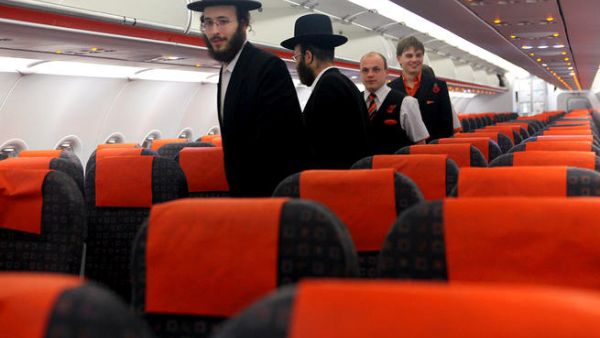Two transport items in the region, Jordan and the UAE:
Jetting into Jordan
Britain's EasyJet says it has no qualms about its new low-cost service to the Jordanian capital despite protests that have recently turned deadly in the country.
EasyJet flights to Amman started on Sunday.
The budget carrier's spokesman James Fearnley said on Monday that EasyJet still considers Jordan "stable" even though there have been three months of anti-government protests inspired by the uprisings across the Arab world. One protester died on Friday.
EasyJet is the first low-cost airline link from Europe to Jordan with a return ticket priced at $166, or 106 British Pounds, including tax — a quarter of rates by other airlines.
Jordan's Tourism Board has predicted tourist numbers will drop by 25 percent over regional unrest.
Still on track
The UAE has not abandoned plans for a direct passenger rail link between Dubai and Abu Dhabi, a senior official at the Roads and Transport Authority (RTA) said, as Dubai prepares to host a major global public transport forum.
Mohammed Obaid Al Mulla, an RTA board member and chairman of the organising committee for next month’s high-profile International Association for Public Transport (UITP) Congress, said yesterday that plans had not been derailed in favour of a network used purely for freight.
His remarks come after reports earlier this week quoted Richard Bowker, chief executive of Etihad Rail - the new name for the firm behind the pan-UAE rail project formerly known as the Union Railway - as saying a passenger route between the UAE’s two busiest centres had been suspended as priority shifted towards freight.
However, Al Mulla said tenders for the project have been issued, and that the plan for two separate lines is still on track.
“Within the UAE there will be two lines - one will be for passengers and the other will be for freight,” he said.
The backers of the Etihad Rail project have redesigned plans, which originally called for 1,500km of railway, to shrink that network to 1,200km on a project costing $11 billion.
First freight operations are expected to begin in 2013, with the entire UAE network completed in 2019, though it remains unclear when passenger trains would begin to operate.
This week Etihad Rail chairman Nasser Al Sowaidi, said an extensive rail network would help build on the UAE’s role as a “trading economy” to see it become “a logistics hub for businesses and industries in the region and beyond.”
Meanwhile, Dubai will next month welcome major figures from public transport networks around the globe, including transport ministers from countries ranging from Sweden to Senegal and the chief executives of the New York and Moscow metro networks to the UITP Congress.
Organisers announced the high-profile expo would see the launch of a prototype ‘Superbus’, which runs at 250km per hour on its own road.








